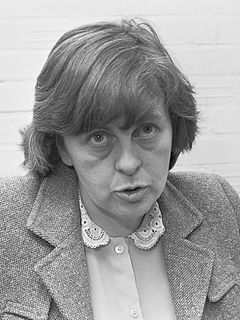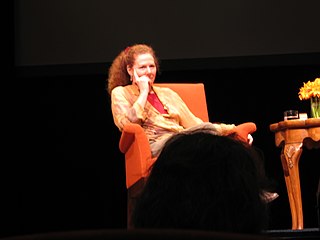A Quote by Bernadette Devlin
Should an anthropologist or a sociologist be looking for a bizarre society to study, I would suggest he come to Ulster. It is one of Europe's oddest countries. Here, in the middle of the twentieth century, with modern technology transforming everybody's lives, you find a medieval mentality that is being dragged painfully into the eighteenth century by some forward-looking people.
Related Quotes
It is my belief that whereas the twentieth century has been a century of war and untold suffering, the twenty-first century should be one of peace and dialogue. As the continued advances in information technology make our world a truly global village, I believe there will come a time when war and armed conflict will be considered an outdated and obsolete method of settling differences among nations and communities.
In the 19th century, when Muslims were looking at Europe as an example, they were independent; they were more self-confident. In the early 20th century, with the fall of the Ottoman Empire, the whole Middle East was colonized. And when you have colonization, what do you have? You have anti-colonization.
I think I was born with a sense of instantaneous connection between the things I perceived in the world and my feelings about those things my character has served me well it has made me. well, an eighteenth -century man of letters, though one who happens to be female and lives in twentieth-century Berkeley.
Given that the nineteenth century was the century of Socialism, of Liberalism, and of Democracy, it does not necessarily follow that the twentieth century must also be a century of Socialism, Liberalism and Democracy: political doctrines pass, but humanity remains, and it may rather be expected that this will be a century of authority ... a century of Fascism. For if the nineteenth century was a century of individualism it may be expected that this will be the century of collectivism and hence the century of the State.
Today's Uncle Tom doesn't wear a handkerchief on his head. This modern, twentieth-century Uncle Thomas now often wears a top hat. He's usually well-dressed and well-educated. He's often the personification of culture and refinement. The twentieth-century Uncle Thomas sometimes speaks with a Yale or Harvard accent. Sometimes he is known as Professor, Doctor, Judge, and Reverend, even Right Reverend Doctor. This twentieth-century Uncle Thomas is a professional Negro -by that I mean his profession is being a Negro for the white man.
Film is more than the twentieth-century art. It's another part of the twentieth-century mind. It's the world seen from inside. We've come to a certain point in the history of film. If a thing can be filmed, the film is implied in the thing itself. This is where we are. The twentieth century is on film. You have to ask yourself if there's anything about us more important than the fact that we're constantly on film, constantly watching ourselves.
Sometimes at lectures I am asked: how would the champions of the last century play today? I think that, after making a hurried study of modern openings, and watching one or two tournaments, the champions of the last century, and indeed the century before that, would very quickly occupy the same place that they occupied when they were alive.


































